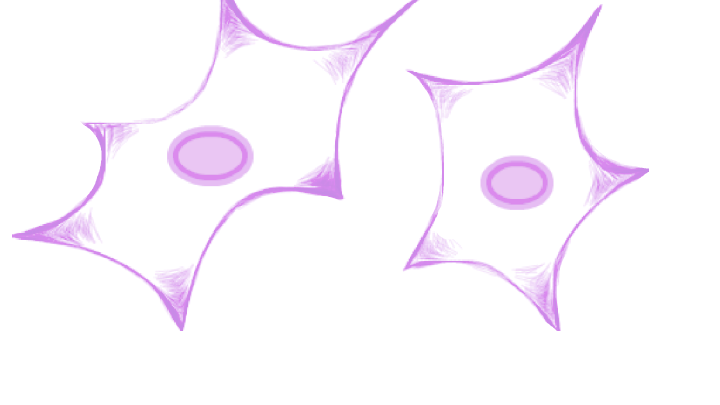Cell Senescence Entries for HSPA1A
- Cell Types
- Breast cancer, Cervical cancer, Colorectal cancer
- Cell Lines
- HCT116, HeLa, MCF-7
- Cancer Cell?
- Yes
- Method
- Knockdown
- Type of senescence
- Unclear
- Senescence Effect
- Inhibits
- Primary Reference
- Yaglom et al. (2007) High levels of heat shock protein Hsp72 in cancer cells suppress default senescence pathways. Cancer Res 67(5)2373-81 (PubMed)
HSPA1A Gene Information
- HGNC symbol
- HSPA1A
- Aliases
- HSP70-1; HSPA1
- Common name
- heat shock protein family A (Hsp70) member 1A
- Entrez Id
- 3303
- Description
- This intronless gene encodes a 70kDa heat shock protein which is a member of the heat shock protein 70 family. In conjuction with other heat shock proteins, this protein stabilizes existing proteins against aggregation and mediates the folding of newly translated proteins in the cytosol and in organelles. It is also involved in the ubiquitin-proteasome pathway through interaction with the AU-rich element RNA-binding protein 1. The gene is located in the major histocompatibility complex class III region, in a cluster with two closely related genes which encode similar proteins. [provided by RefSeq, Jul 2008].
HSPA1A Ontologies
- Gene Ontology
-
Process: GO:10628; positive regulation of gene expression
GO:43066; negative regulation of apoptotic process
GO:6986; response to unfolded protein
GO:46718; viral entry into host cell
GO:16192; vesicle-mediated transport
GO:8285; negative regulation of cell population proliferation
GO:6402; mRNA catabolic process
GO:50821; protein stabilization
GO:30308; negative regulation of cell growth
GO:32757; positive regulation of interleukin-8 production
GO:51092; positive regulation of NF-kappaB transcription factor activity
GO:2001240; negative regulation of extrinsic apoptotic signaling pathway in absence of ligand
GO:7041; lysosomal transport
GO:30512; negative regulation of transforming growth factor beta receptor signaling pathway
GO:34599; cellular response to oxidative stress
GO:34605; cellular response to heat
GO:60548; negative regulation of cell death
GO:1901673; regulation of mitotic spindle assembly
GO:1902236; negative regulation of endoplasmic reticulum stress-induced intrinsic apoptotic signaling pathway
GO:32436; positive regulation of proteasomal ubiquitin-dependent protein catabolic process
GO:34620; cellular response to unfolded protein
GO:42026; protein refolding
GO:90084; negative regulation of inclusion body assembly
GO:51085; chaperone cofactor-dependent protein refolding
GO:45648; positive regulation of erythrocyte differentiation
GO:97201; negative regulation of transcription from RNA polymerase II promoter in response to stress
GO:46034; ATP metabolic process
GO:31396; regulation of protein ubiquitination
GO:51131; chaperone-mediated protein complex assembly
GO:31397; negative regulation of protein ubiquitination
GO:33120; positive regulation of RNA splicing
GO:70370; cellular heat acclimation
GO:70434; positive regulation of nucleotide-binding oligomerization domain containing 2 signaling pathway
GO:71383; cellular response to steroid hormone stimulus
GO:90063; positive regulation of microtubule nucleation
GO:1901029; negative regulation of mitochondrial outer membrane permeabilization involved in apoptotic signaling pathway
GO:1902380; positive regulation of endoribonuclease activity
GO:1903265; positive regulation of tumor necrosis factor-mediated signaling pathway
Cellular component: GO:5634; nucleus
GO:5737; cytoplasm
GO:16607; nuclear speck
GO:32991; protein-containing complex
GO:5783; endoplasmic reticulum
GO:5814; centriole
GO:5739; mitochondrion
GO:5576; extracellular region
GO:5856; cytoskeleton
GO:5925; focal adhesion
GO:5829; cytosol
GO:1990904; ribonucleoprotein complex
GO:48471; perinuclear region of cytoplasm
GO:8180; COP9 signalosome
GO:5815; microtubule organizing center
GO:31982; vesicle
GO:5813; centrosome
GO:5886; plasma membrane
GO:5654; nucleoplasm
GO:70062; extracellular exosome
GO:72562; blood microparticle
GO:1904813; ficolin-1-rich granule lumen
GO:16235; aggresome
GO:16234; inclusion body
Hide GO termsFunction: GO:5515; protein binding
GO:3723; RNA binding
GO:166; nucleotide binding
GO:5524; ATP binding
GO:16887; ATP hydrolysis activity
GO:51082; unfolded protein binding
GO:5102; signaling receptor binding
GO:31625; ubiquitin protein ligase binding
GO:45296; cadherin binding
GO:47485; protein N-terminus binding
GO:19899; enzyme binding
GO:3714; transcription corepressor activity
GO:1618; virus receptor activity
GO:42826; histone deacetylase binding
GO:1664; G protein-coupled receptor binding
GO:44183; protein folding chaperone
GO:31072; heat shock protein binding
GO:97718; disordered domain specific binding
GO:31249; denatured protein binding
GO:51787; misfolded protein binding
GO:55131; C3HC4-type RING finger domain binding
GO:140545; protein disaggregase activity
Homologs of HSPA1A in Model Organisms
No homologs found
In other databases
External links
- OMIM
- 140550
- Ensembl
- ENSG00000204389
- Entrez Gene
- 3303
- UniGene
- 702139
- 1000 Genomes
- 1000 Genomes
- HPRD
- GenAtlas
- HSPA1A
- GeneCards
- HSPA1A
